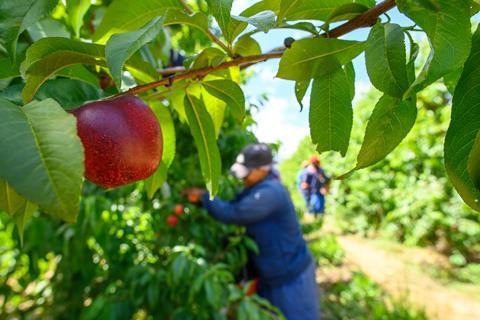With the southern African stonefruit and table grape seasons underway, exporters and industries are looking at logistical solutions to on-time shipments from Cape Town
The southern African stonefruit and table grape seasons are gaining momentum and, in light of ongoing problems at Cape Town’s container terminal, there are now plans to significantly increase shipments via specialised reefer vessels between December and February.

Although it is still early in the season, plans are afoot to utilise conventional reefers in addition to containers in order to ensure regular fresh arrivals of stonefruit throughout the season.
Taking a leaf out of the book of Cape citrus exporters, who run a very successful reefer programme to the US every year, sources say there could be conventional reefers loading weekly during January and February for shipments to the UK and Europe.
It is understood that one vessel is to be scheduled in the pre-Christmas period. Hortgro spokesperson Jacques du Preez says such a shipping programme will be crucial to the stonefruit industry in its efforts to avoid possible delays or compromised fruit quality on arrival. He says such a programme will depend on table grape exporters joining the programme.
Conventional reefer vessels use the berths at the old reefer terminal in the main port in Cape Town. For the successful US citrus programme, fruit is assembled at internal coldstores and taken directly to the shipside. These berths are less susceptible to delays due to wind, which is a perpetual problem at the container terminal. It is a very focused programme and not subject to capacity and other problems caused by inefficiencies at the container terminal.
During the past two seasons, delays in Cape Town resulted in irregular arrivals to the UK and Europe, affecting sales programmes and fruit quality. Industry sources say they have invested a great deal in turning out the best quality fruit from their orchards. Consumers and members of the trade in Europe have acknowledge these improvements and there is therefore great emphasis on the condition of the fruit on arrival.



